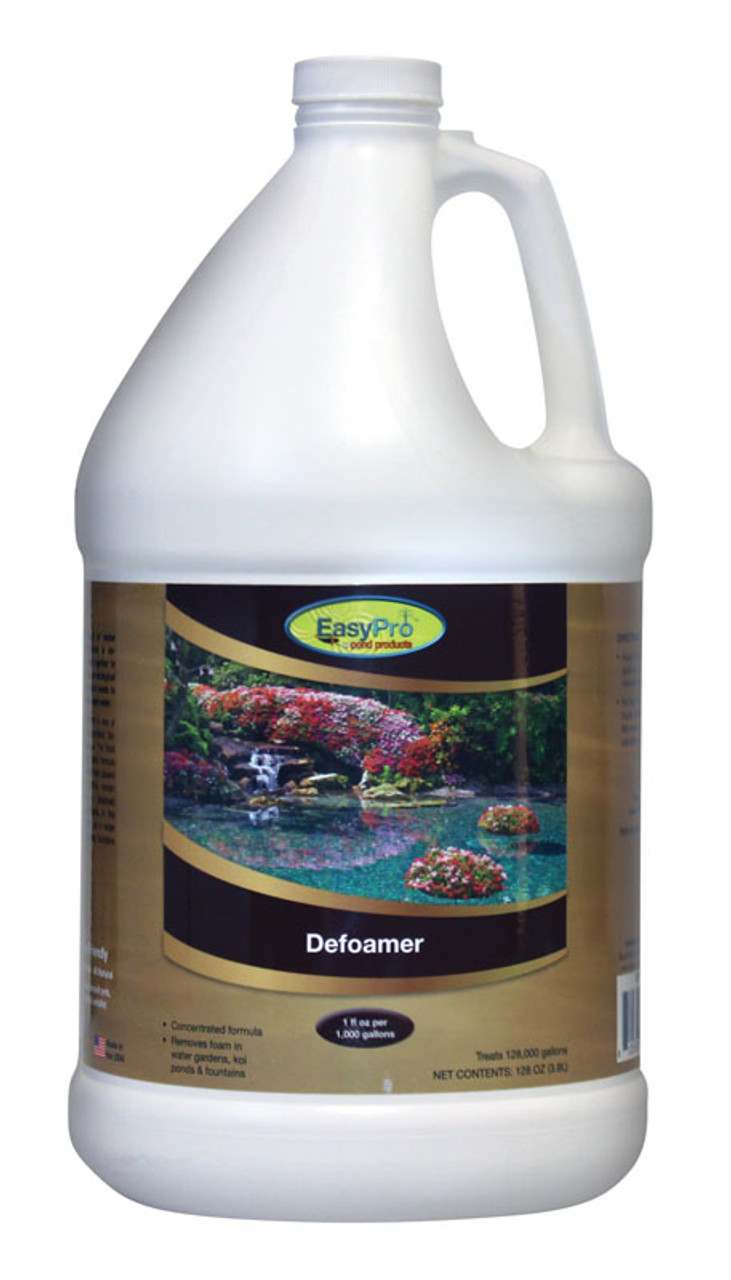Defoamers and Their Impact on Reducing Foam in Liquid Systems
Defoamers and Their Impact on Reducing Foam in Liquid Systems
Blog Article
Discover the Top Benefits of Utilizing Defoamers in Industrial Processes
The use of defoamers in commercial processes offers an array of compelling benefits that can improve operational efficiency and product top quality. By properly controlling foam production, these representatives not only enhance material flow but also contribute to considerable expense decreases and boosted sustainability. The ramifications of embracing defoamers might be much more profound than originally regarded.
Improved Process Effectiveness
Maximizing industrial processes often involves dealing with foaming issues, which can hinder functional performance. Foam formation can interfere with the correct performance of tools, reduce the effective utilization of resources, and complicate the tracking of essential specifications. By executing defoamers, sectors can successfully alleviate these problems, resulting in structured operations and enhanced efficiency.
Defoamers job by destabilizing the foam structure, enabling fast collapse and significant reduction in foam volume. This activity not only boosts the flow of products through tools, such as pipes, activators, and mixers, but additionally reduces disruptions brought on by foam overflow. Equipment downtime is decreased, enabling for a more constant and reliable production process.
In addition, the use of defoamers can cause minimized power intake. With much less foam to manage, compressors and pumps can run extra successfully, leading to reduced operational costs and a total renovation in procedure throughput. Eventually, the strategic usage of defoamers not only addresses immediate frothing difficulties yet additionally adds to a much more reliable commercial environment, fostering an affordable advantage in a demanding market.
Improved Item High Quality
The combination of defoamers in industrial procedures plays an essential role in improving product quality. By successfully regulating foam development, defoamers add to the consistency and harmony of last products. Too much foam can lead to oygenation, which adversely influences the texture and stability of formulas, specifically in sectors such as food and drugs, coverings, and beverages.

Moreover, defoamers promote better blending and diffusion of components, causing homogeneity in formulas. This is necessary in applications where specific ingredient ratios are crucial for efficiency and safety and security. Furthermore, the removal of foam can reduce the threat of contamination during production, additional safeguarding product honesty.
Inevitably, by boosting item top quality, defoamers not only enhance consumer complete satisfaction but additionally enhance brand name track record. Their duty in maintaining high-grade requirements highlights their value in contemporary commercial processes.
Price Reduction Benefits
Carrying out defoamers in commercial processes can cause considerable expense reduction benefits. By successfully controlling foam development, defoamers lessen product loss throughout production, consequently enhancing material usage. This reduction in waste converts straight into reduced raw product costs, improving overall operational performance.
Moreover, using defoamers can reduce power consumption. Extreme foam can hinder devices performance, leading to increased power requirements to keep manufacturing degrees. By reducing foam, defoamers promote smoother procedures, permitting machinery to run more efficiently and reducing energy expenditures.

In addition, defoamers can reduce processing times. By utilizing defoamers, markets can streamline their processes, leading to faster turnaround times and boosted throughput.

Environmental Influence Mitigation
In industrial processes, making use of defoamers plays an important role in mitigating ecological influences linked with foam generation. Foam can result in substantial functional inadequacies, causing raised emissions and waste generation. By successfully managing foam, defoamers assist preserve procedure performance, therefore lowering the More Info overall ecological footprint of procedures.
In addition, extreme foam can overflow containment systems, leading to spills that might pollute soil and water sources. Defoamers assist minimize this danger by guaranteeing that foaming does not exceed prescribed limitations, advertising conformity with environmental guidelines. This aggressive method not just safeguards ecosystems but likewise boosts the sustainability of industrial methods.
Additionally, using defoamers can reduce power consumption in different procedures. defoamers. Decreasing foam formation decreases the requirement for additional energy-intensive steps, such as raised frustration or pumping, which might or else be necessary to manage foam. The fostering of defoamers lines up with more comprehensive sustainability objectives by promoting power performance while decreasing the carbon impact of industrial activities.
Eventually, incorporating defoamers right into industrial procedures is a tactical step that supports ecological stewardship and responsible source management.
Convenience Throughout Industries
Across different markets, defoamers show impressive flexibility, adapting to the specific needs of varied applications. In the food and drink field, for circumstances, defoamers are crucial to preserving item quality by avoiding foam formation throughout processing, which can affect appearance and flavor. Likewise, in the pharmaceutical market, defoamers ensure the stability of formulations, boosting item effectiveness and consistency.
In the chemical production realm, defoamers promote smoother procedures by lessening foam in response vessels, therefore Website boosting yield and reducing downtime. The paper and pulp industry depends on defoamers to improve the effectiveness of pulp processing and paper production, guaranteeing optimal product stability. Furthermore, in wastewater therapy centers, defoamers play an essential duty in controlling foam during aeration processes, bring about improved treatment results.
The adaptability of defoamers encompasses the oil and gas sector, where they assist in taking care of foam in exploration fluids and manufacturing procedures. By customizing solutions to meet particular sector requirements, defoamers work as crucial tools that improve functional effectiveness, item high quality, and total procedure effectiveness across a wide variety of industries. Their versatility underscores their worth in contemporary commercial applications.
Conclusion
In verdict, the use of defoamers in industrial processes provides countless benefits, including improved performance, boosted item high quality, significant cost reductions, and positive ecological impacts. The assimilation of defoamers stands for a critical approach to attending to challenges connected with foam monitoring in various making environments.
Eventually, the critical use of defoamers not only addresses prompt frothing difficulties yet likewise contributes to a much more reliable commercial environment, cultivating a competitive benefit in a requiring market.
In industrial processes, the use of defoamers plays a crucial duty in mitigating ecological effects associated with find more foam generation. By properly controlling foam, defoamers help preserve process efficiency, thus minimizing the general environmental impact of procedures.
In addition, in wastewater therapy facilities, defoamers play an important function in regulating foam throughout aeration processes, leading to enhanced therapy outcomes.

Report this page